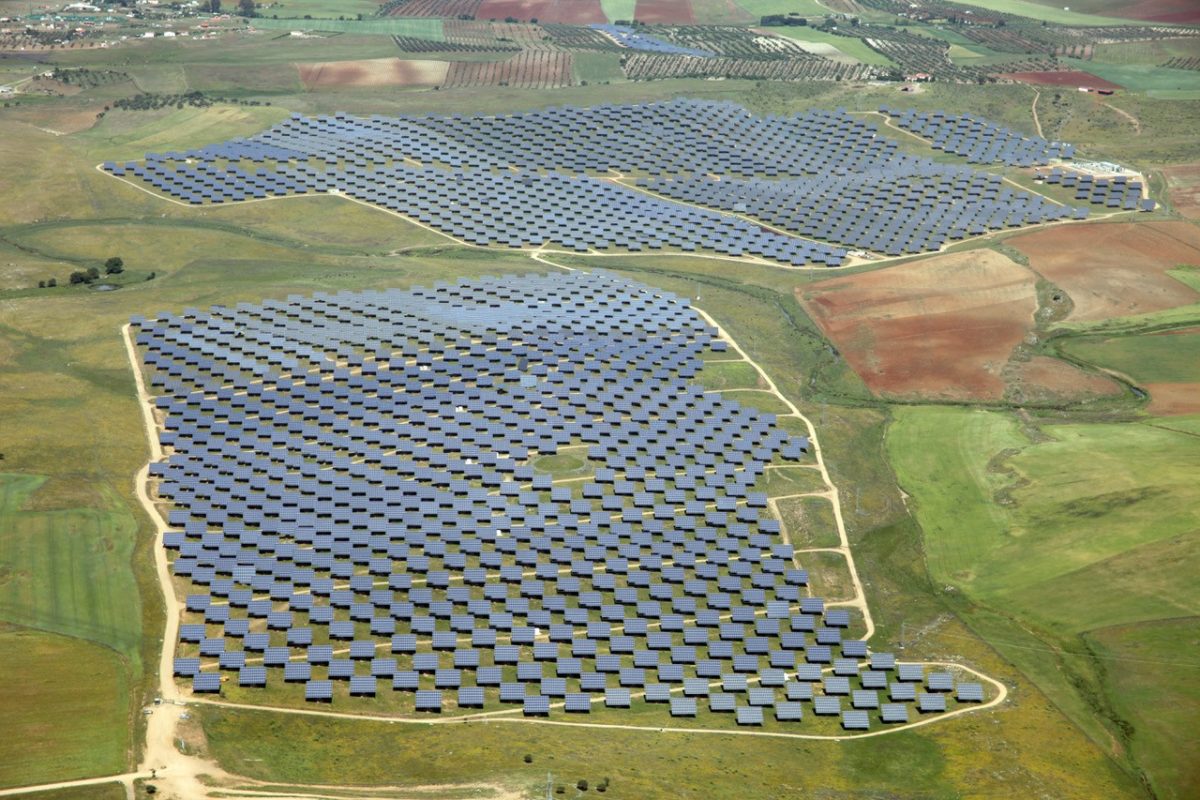The Spanish renewable energy developer Grupo Eco announced its 500 MW solar project in Spain’s southern region of Extremadura has been given environmental approval by the country’s Ministry of Agriculture and Fisheries, Food and Environment (Mapama), the project will now have to receive the approval of the Ministry of Energy.
The $300 million project, named Planta Solar Núñez de Balboa, was originally conceived in 2012 and is planned to be specifically located within the municipalities of Usagre, Hinojosa del Valle and Bienvenida, in the Extremaduran province of Badajoz, in the southwest of Spain.
The project will include the construction of a substation with a capacity of 30/400 kW and a 400 kW transmission line with a length of 12.3 km. According to a document published in the country’s official journal, the solar plant is expected to produce around 850 GWh per year and to avoid the emission of 303.450 tonnes of CO2.
Overall, all of the solar park’s 273 sub-sections will require a surface of 854 hectares. These units will have a power range from 1.80 MW to 1.83 MW. Furthermore, the huge solar plant will rely on 1.535.637 with a power output of 325 W each and 273 inverters with each a capacity of 1.58 MW.
Popular content
The region Extremadura, which is supporting the Núñez de Balboa project since the early stages of its development, is preparing to host a huge amount of PV plants that are planned to sell power on the Spanish spot market. Since the Spanish government closed the FIT program for solar in 2012, a large number of large-scale merchant PV projects have been announced in Spain, including among others the Calzadilla de los Barros project, a 450 solar park planned by Juwi, and Ellomay’s 300 MW PV plant Talaván near Cáceres.
In a recent interview with pv magazine, José Donoso, the president of Madrid-based solar association UNEF, has said that Spain is now ready to see large-scale PV projects go merchant. Donoso, however, said that the current market design must change, in order to make projects of this kind really feasible in the near future.
This content is protected by copyright and may not be reused. If you want to cooperate with us and would like to reuse some of our content, please contact: editors@pv-magazine.com.



3 comments
By submitting this form you agree to pv magazine using your data for the purposes of publishing your comment.
Your personal data will only be disclosed or otherwise transmitted to third parties for the purposes of spam filtering or if this is necessary for technical maintenance of the website. Any other transfer to third parties will not take place unless this is justified on the basis of applicable data protection regulations or if pv magazine is legally obliged to do so.
You may revoke this consent at any time with effect for the future, in which case your personal data will be deleted immediately. Otherwise, your data will be deleted if pv magazine has processed your request or the purpose of data storage is fulfilled.
Further information on data privacy can be found in our Data Protection Policy.